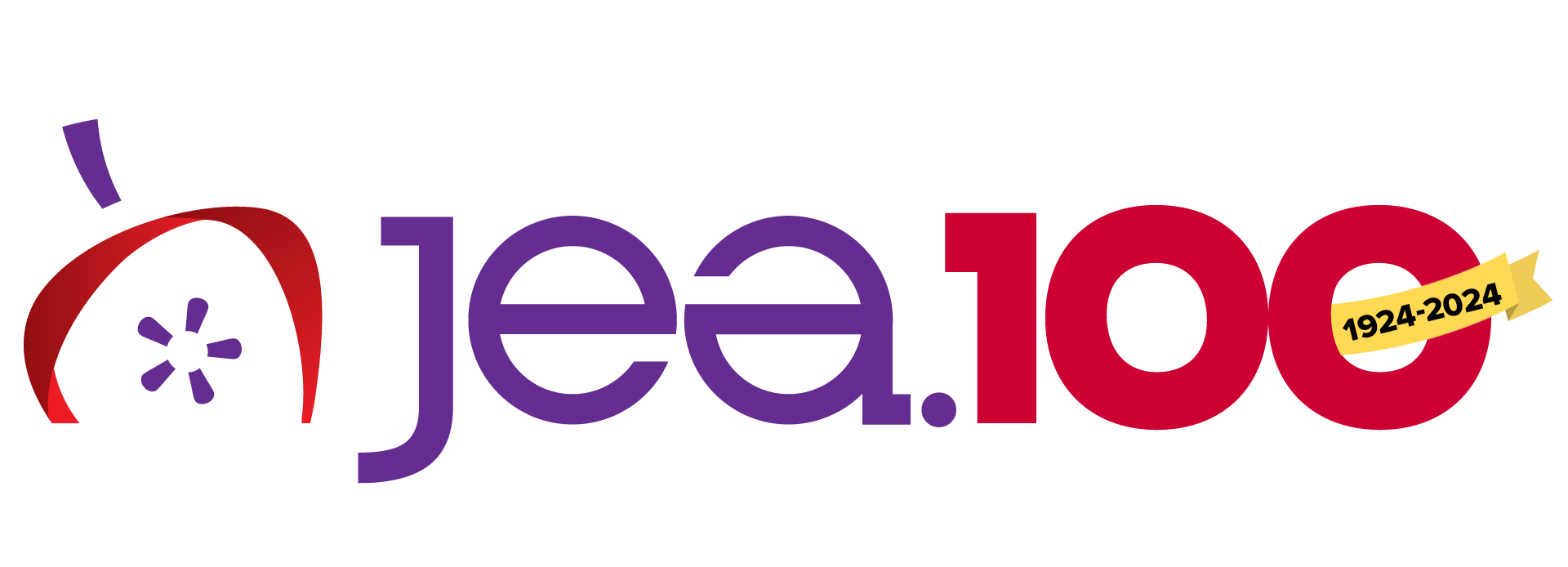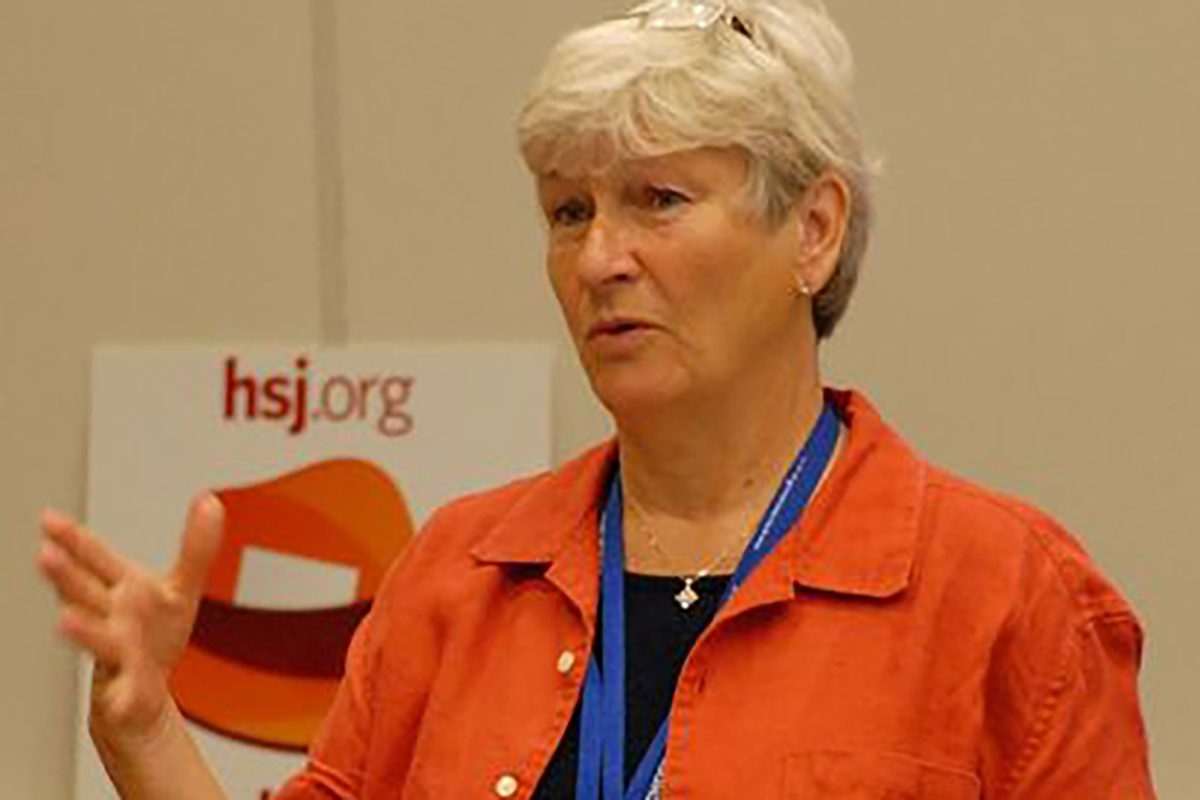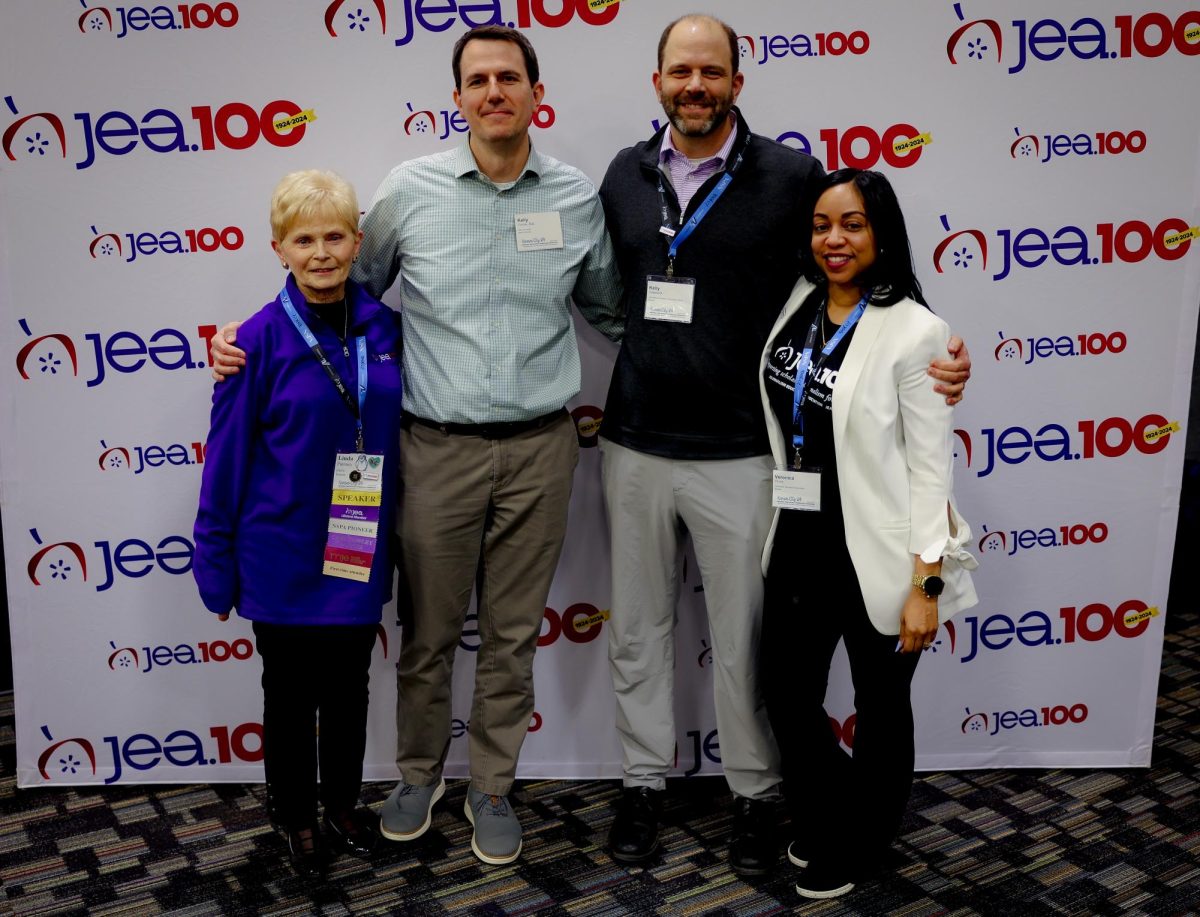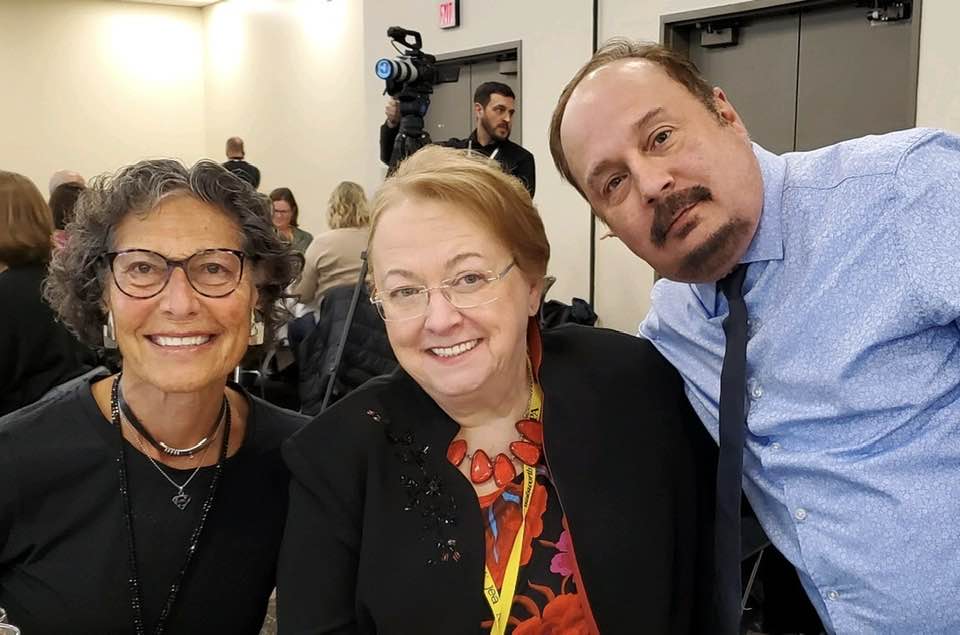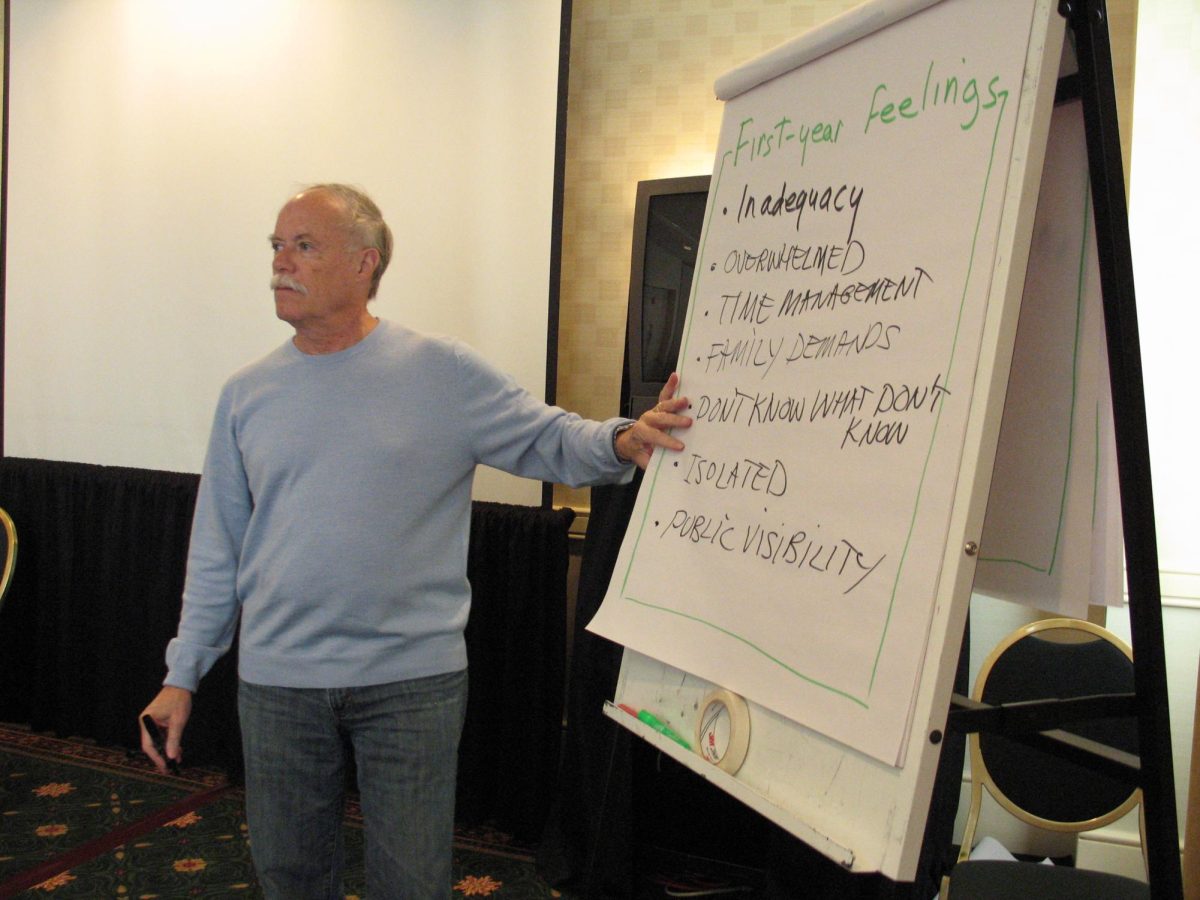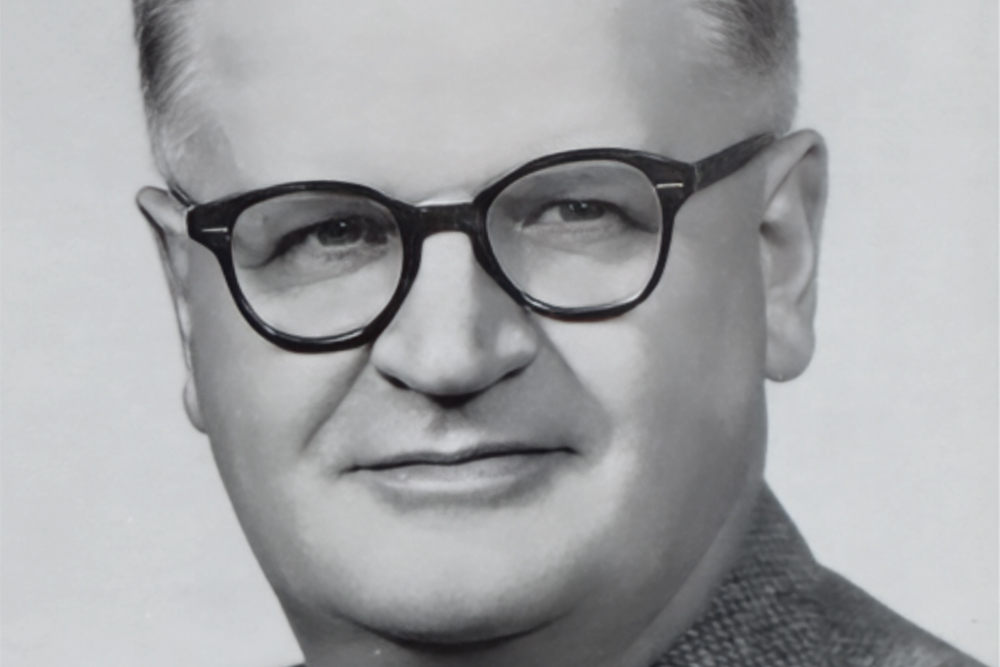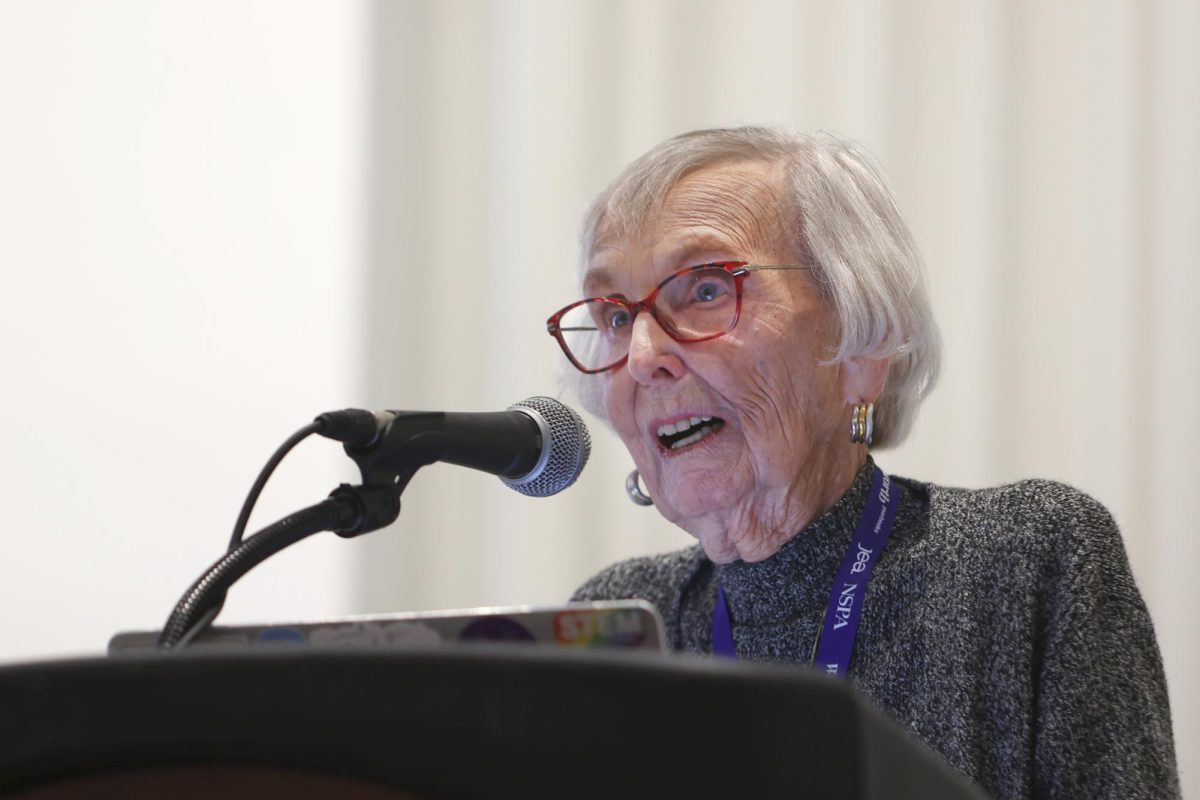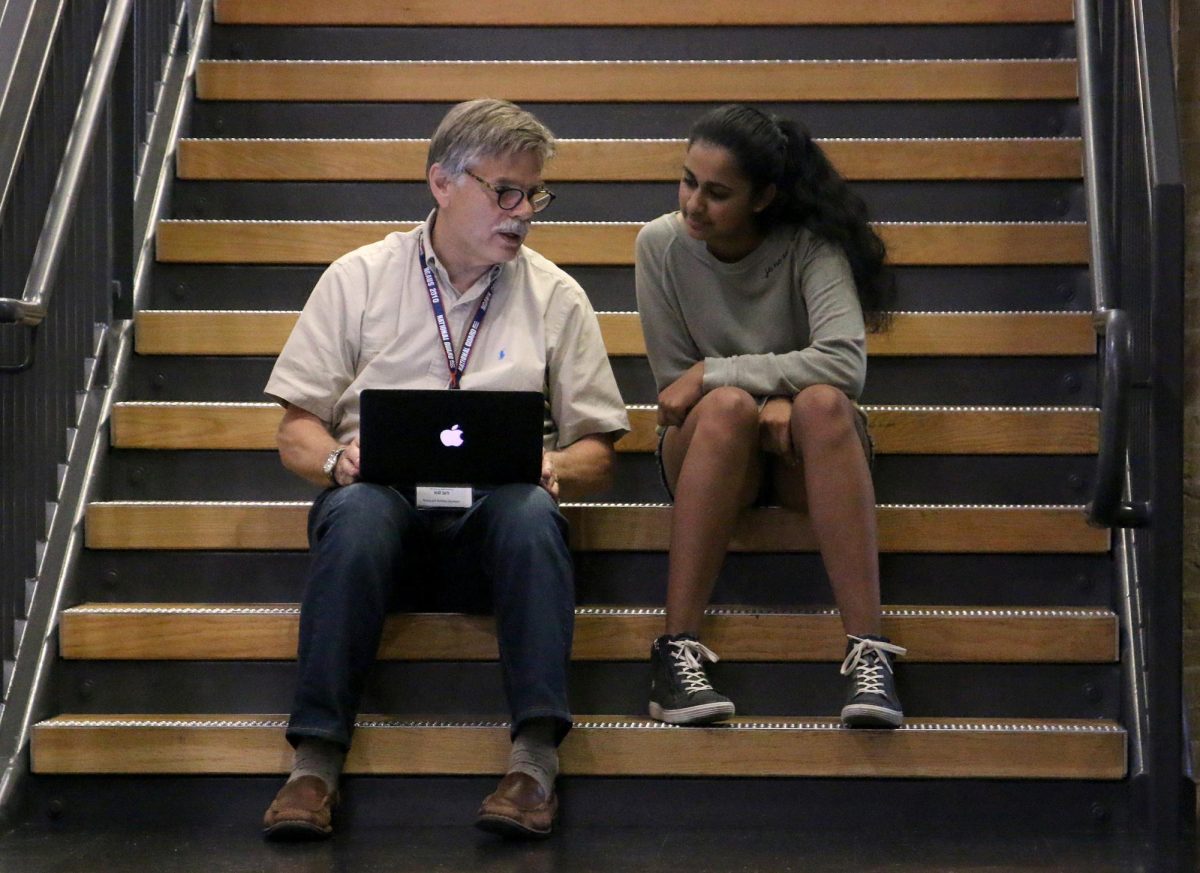Fearless.
That one word describes Susan Tantillo, the 1996 Carl Towley winner. Here’s why.
A first-generation college student, Tantillo chose to attend Purdue University in West Lafayette, Indiana, because it fit her parents’ requirement of a state school and it fit her requirement of being away from home. There was no journalism program at Purdue so she majored in English and became the features editor for the Exponent student newspaper. Graduation from Purdue in 1967 took her almost immediately to Indiana University where she completed a master’s in journalism in 1969.
She began teaching in 1971, took students to a JEA convention in 1974 and in 1978 attended the JEA Summer Seminar in St. Charles, Illinois, where she met JEA leaders and her professional life changed.
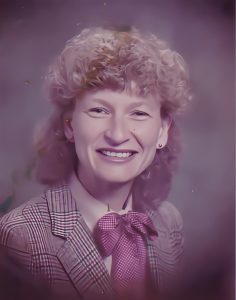
“Ron Clemons was president and had just lost the editor of NewsWire,” Tantillo said. “I attended a meeting where he looked at a copy of the Spokesman, the paper I advised. I guess he liked it, because he asked me if I would be the editor of NewsWire.”
She accepted the position on the spot, although she knew little of what the job entailed, and that was the beginning of her decades-long service to JEA. Over the next 30 plus years she was NewsWire editor, a regional director, chaired the Awards Committee and the Certification Commission, was Board secretary and was the local Write-Off chair in 1982 and 1986 and co-chair of the 1991 Chicago conventions and chair of the 1996 and 2005 Chicago conventions.
The 1982 convention was again a step into the unknown.
It was at a JEA board meeting in California in 1981 where the discussions centered on who could put together the convention that was months away. A concern was the lack of a single state organization to take the lead. At the time there were five scholastic organizations in Illinois mostly located at universities.
“They (the board) said we couldn’t do it, that we weren’t strong enough to pull it together,” Tantillo said. “We disagreed. So, the ’82 convention was a challenge five of us — Candace Perkins (Bowen), John Wheeler, Howard Spanogle, Jeff Curry and I— took on. I guess we wanted to prove we could do it since the organization went out on a limb for us.”
And they did. With 1,452 attendees the convention was the largest fall convention at that time. Four years later the convention returned to Chicago with Candace Perkins (Bowen) as the chair and the same group of five leading the local committee. It should have been easy, but it wasn’t.
“One year before the convention the Inter-Continental Hotel, the site of the upcoming convention, closed for renovation and we were left to find a new location,” Tantillo said.
Because there was no established headquarters office, the five were left to find a new space and negotiate the contracts. The Holiday Inn east of Michigan Avenue could provide rooms, but there was no ballroom or enough meeting space to accommodate larger sessions. A second location needed to be secured.
“We found more meeting space and a ballroom at the Hyatt Regency, but they required payment and we were on our own to provide that,” Tantillo said. “Again, we were out on a limb but all five of us committed to personally pay for the space.”
The convention was a success and personal funds were not used.
Although her contributions to five conventions is significant, Tantillo doesn’t see it as her most important JEA role.
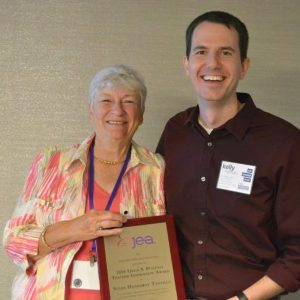
“My greatest contribution was to help grow the Certification Program from 1992 through 2000 with the assistance of a committee of dedicated secondary and university educators,” Tantillo said. “The program encourages student media advisers to continue their journalism education and become increasingly proficient. Ideally, achieving certification gives student media advisers added credibility in their schools where they often are the only one engaged in this critical role.”
Creating a strong certification program and a robust curriculum for teachers goes hand-in-hand with what Tantillo sees as JEA’s most important role.
“Certification empowers advisers to feel confident in what they are teaching. Then they can empower students to find their voice while in high school,” Tantillo said. “JEA must continue to work toward student freedom of expression in every state. There is nothing more important than students finding their voices and having the freedom to decide how to use those voices.”
